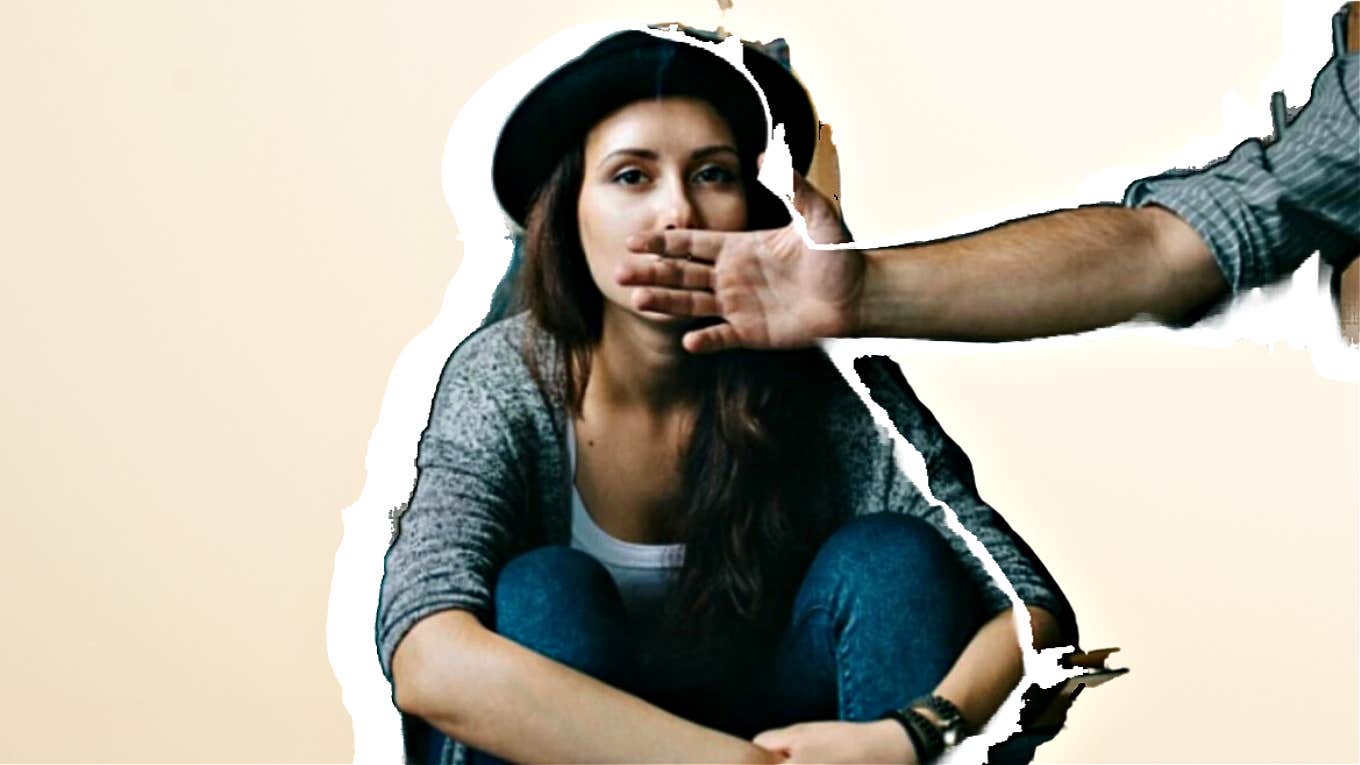The Powerful Choice Made By Survivors Of Childhood Verbal Abuse That Echoes Through Generations
You are not the only one set free by this work.
 Getty
Getty Being in a verbally abusive relationship is far more common than anyone would like to think. The line between a parent being strict and verbally abusive can be a fine one for some. For others, there is no question of what's what, and they can recognize the signs of verbal abuse without hesitation.
Our experience as victims of verbal abuse becomes a part of us, even seeming somehow normal. We go on, even tolerating it from our partners, parents, or co-workers. When you've been verbally abused, one of three things usually happens.
Three choices adult survivors of childhood verbal abuse can make:
1. You can repeat the verbal abuse to others.
2. You can live in fear and become a people-pleaser, taking whatever others hand out.
3. You can get help.
When you get help, you become your own person, learning to live according to your values and vision, and you take back control of your life. The life you build does not include being verbally abusive to yourself or anyone else ... particularly not to your children.
For more on why these patterns exist — why some get help and break patterns and others don't — read on.
RELATED: 3 Psychological Reasons Even The Nicest People Are Willing To Be Cruel Sometimes
Why the pattern of abuse continues
Being verbally abusive is a way for the abuser to feel they have a sense of power over someone else. This form of violence — which it is — has been well-defined by the National Domestic Violence Hotline, and applies to this type of behavior in any type of relationship:
"Abuse is a repetitive pattern of behaviors to maintain power and control over an intimate partner. These are behaviors that physically harm, arouse fear, prevent a partner from doing what they wish, or force them to behave in ways they do not want. Abuse includes the use of physical and sexual violence, threats and intimidation, emotional abuse, and economic deprivation. Many of these different forms of abuse can be going on at any one time."
Scary, right? And, it's far more common than you or I think.
My story
My mother was both verbally and emotionally abusive. Did I know that as a kid? Yes. But I didn't have a name for it. It just felt really bad, and I hated the way she constantly put me down, and found daily things — hourly things — to criticize. One of her "best" was how often she told me she had never wanted kids. No wonder I'm an only child.

Photo: Master1305 via Shutterstock
So, even though it felt all wrong, as a child I was powerless to define another way of thinking about myself other than through the lens of opinions my mother served up daily. Where was my father in all this? He was away from home as often as possible. He couldn't stand her, either. Looking back, it's not surprising he decided to become a commercial fisherman when I was young. He had an ironclad reason for being away six months of the year.
Not surprisingly, my father also had serious health issues. That put him in the hospital most years for at least three months of his time at home. And the rest of that time? He spent it in the pool room, which was off-limits to women.
Another example of abuse in my young life stemmed from that very room. My father often wouldn't come home for dinner on time, and my mother would drive to the pool room and force me to go in and get him. Do you see that abuse? I hope so. It just wasn't appropriate on any level.
None of us who experience verbal and emotional abuse are alone, although most of us feel extremely alone. The Center for Disease Control and Prevention's December 17th, 2010 edition of their Morbidity and Mortality Weekly Report disclosed that:
"About a quarter of the more than 26,000 adults surveyed reported experiencing verbal abuse as children, nearly 15 percent had been physically abused, and more than 12 percent — more than one in 10 — had been sexually abused as a child... Almost one in five respondents (19.4 percent) had lived as a child with someone who was depressed, mentally ill, or suicidal."
Because the verbally abusive relationship becomes horribly "normal" to those who experienced it, they often don't see it as it is happening.
You may well see it in others, but not in yourself. You may not get in touch with what has happened to you (if you ever do) until you find yourself trying to figure out why it is you can't find love, or until you find yourself stuck in (yet another) relationship that just isn't working.
When the pain and loneliness — yes, you can feel lonely even when you are in a relationship — become too much, you finally get some professional help. That's when you discover that what you absorbed so early in your life, unintentionally and definitely without your permission, has been silently sabotaging every relationship you have ever entered.
The big (really big!) upsides of getting help as a former victim of verbal abuse
- You can heal.
- You can stop feeling there is something wrong with you.
- You can stop blaming yourself.
- You can stop blaming your partner.
- You can find your power.
- You can release yourself from the shackles of your past — and finally feel free.
This discovery can give you a new lease on life with your partner and your children. Verbal abuse, whether hidden behind closed doors or screamed in the supermarket, has a definitive negative effect on everyone involved. It's far too common, and it can keep you from experiencing love, respect, and safety in relationships.
That's too high a price to pay and, yet you will keep on paying until you see it, name it, and eradicate it from your daily life. You deserve to be free.
Rhoberta Shaler, The Relationship Help Doctor, has provided urgent and ongoing care for relationships in crisis for more than 30 years. She also hosts the Save Your Sanity Podcast.

